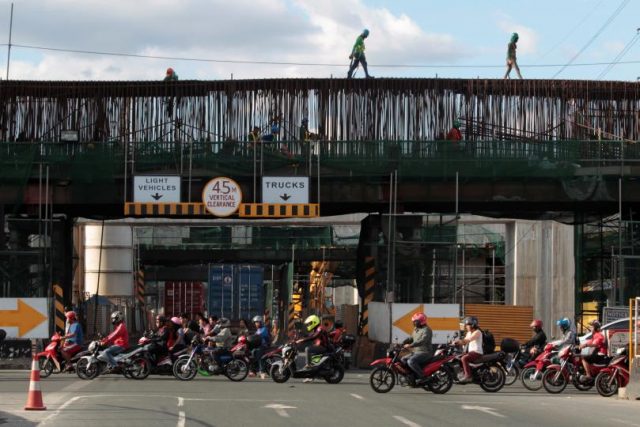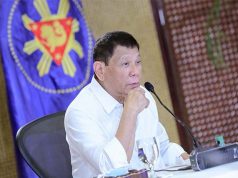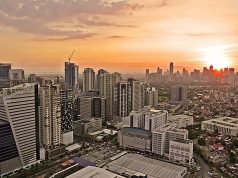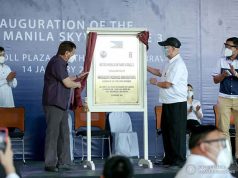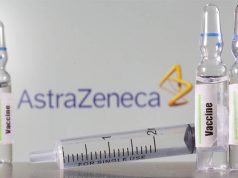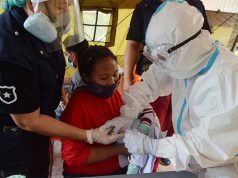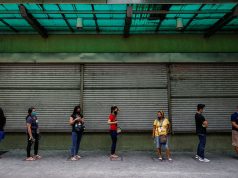TOKYO – In line with their mutually approved “Fast and Sure” principle, top Philippine and Japanese officials agreed here Monday to further streamline their respective approval processes and introduce new measures to put in the fast lane the implementation of big-ticket infrastructure projects presented by Manila to Tokyo for possible financing.
Finance Secretary Carlos Dominguez III, who heads the visiting Philippine delegation to the 3rd Philippines-Japan High-Level Meeting of the Joint Committee on Infrastructure Development and Economic Cooperation held here, reported during the session that “significant milestones” have been reached in the processing of the jointly agreed project list between the two countries.
“Now that our plans have progressed, we intend to lay out specific plans on how to expedite the processing and implementation of the flagship projects,” Dominguez said in his opening remarks during the meeting, referring to the infrastructure projects that the Philippines will be implementing in cooperation with Japan.
In their meeting, both panels agreed to speed up their respective project approval processes and come up with additional measures “for more efficient decision making, and swift execution such as in project preparation and formulation, due diligence, procurement process and project implementation including land acquisition and resettlement,” Dominguez said.
Noting that both governments have successfully introduced improvements in their key processes in the past, the meeting allowed both sides to discuss additional measures to streamline processing, including by introducing innovative mechanisms and actions. The Japanese side expressed openness to explore and discuss government to government measures.
Dominguez said the shortening of the processes would depend on the “complexity of the projects,” among other factors.
“Our regular rounds of high-level meetings have brought about significant changes in the way we do things. Needless to say, we hope to continue pushing for improvements in order to accomplish more in less time,” he said.
Dominguez said the close cooperation between the Philippines and Japan “has not only enabled high-level collaboration” in their bilateral meetings “but also technical-level exchanges on the ground.”
Such technical exchanges include a mission dispatched by the Japan International Cooperation Agency (JICA) for the Metro Manila Subway, and the flood management, irrigation, and road projects as well as the visit of the Philippines’ “Build, Build, Build” team to the construction site of the Shin-Yokohama Subway in Tokyo, Dominguez said.
Apart from Dominguez, the Philippine delegation included Secretary Ernesto Pernia of the National Economic and Development Authority (NEDA), who co-chairs the Philippine side of the high-level infra cooperation meeting; Philippine Ambassador to Japan Jose Laurel V, Secretaries Benjamin Diokno of the Department of Budget Management (DBM), Mark Villar of the Department of Public Works and Highways (DPWH), Arthur Tugade of the Department of Transportation (DOTr), Alfonso Cusi of the Department of Energy (DOE), National Security Adviser and Director General Hermogenes Esperon, Jose Ruperto Martin Andanar of the Presidential Communications Operations Office (PCOO); and Vivencio Dizon, president-CEO of the Bases Conversion and Development Authority (BCDA).
The Japanese side of this high-level meeting was led by Chief Cabinet Secretary Yoshihide Suga and Dr. Hiroto Izumi, who is a special advisor to Prime Minister Shinzo.
The other high Japanese officials present at the meeting were: Koji Haneda, Ambassador-Designate, Embassy of Japan in the Philippines; Director-General Kazuya Nashida, International Cooperation Bureau, Ministry of Foreign Affairs; Director-General Shigeki Takizaki, Southeast and Southwest Asian Affairs Department, Ministry of Foreign Affairs; Deputy Director-General Takashi Miyahara, International Bureau, Ministry of Finance; and Deputy Director-General Kazuhisa Kobayashi, Trade and Economic Cooperation Bureau, Ministry of Economy, Trade and Industry.
‘3-in-1’ streamlined process
Dominguez informed the Japanese officials that on the Philippines’ side, the government recently introduced the “3-in-1” process in which three necessary approvals prior to the signing of any loan agreement for projects funded by Official Development Assistance (ODA) loans will be issued simultaneously during NEDA Board meetings chaired by President Duterte.
Under the streamlined “3-in-1” process, Dominguez said the NEDA Board approval; the issuance of the Special Presidential Authority (SPA) to government officials to negotiate and sign the loan, guarantee or grant agreement for the project; and the Forward Obligational Authority for projects of national government agencies by the Department of Budget and Management (DBM) would be issued simultaneously upon the projects’ approval by the NEDA Board.
This “3-in-1” streamlined process will shorten the processing time for loan approvals “by at least two to three months,” according to Dominguez.
In the meeting, the officials from the two countries also continued their discussions on the candidate flagship infra projects, as well as the other jointly agreed pipeline projects, after which “both sides reaffirmed to continue holding expert-level consultations to address issues concerning railway projects to ensure their smooth implementation,” including the planned first phase of the Metro Manila Subway(from Quezon City to NAIA) and the South Commuter Line (Manila-Los Banos) of the Department of Transportation.
The second high-level infrastructure cooperation meeting between Japan and the Philippines was held last July in Manila, where it was announced that an indicative list of projects with an estimated total cost of P315.4 billion were pipelined for possible Japanese financing.
On top of discussing infrastructure cooperation, the Department of Finance (DOF) said the two sides also exchanged views on the support for Mindanao and other areas of cooperation such as in power and energy, anti-illegal drug measures, public safety and counterterrorism, and information and communications technology.
“Both sides reaffirmed to continue discussions on a mid-and long-term action plan on anti-illegal drug measures and on a document indicating the future direction of the Philippines-Japan cooperation for the next five years, which are targeted to be announced at a future Philippines-Japan summit meeting,” the DOF said.
In the meeting, the Japanese delegation extended Japan’s condolences to the families of those who lost their lives in the crisis in Marawi City, and expressed Japan’s support for the Philippines’ needs for reconstruction and efforts against terrorism.
“The Japanese side also expressed its sincere hope that the situation in Marawi will be restored as soon as possible, and stressed its readiness and willingness to extend necessary assistance for the quick recovery and reconstruction of Marawi and development of Mindanao,” the DOF said.
Also representing the Japanese side at the meeting were: Deputy Commissioner Atsushi Taketani, International Affairs, Agency for Natural Resources and Energy, Ministry of Economy, Trade and Industry; Director-General Yasuhiro Shinohara, International Affairs, Ministry of Land, Infrastructure, Transport and Tourism; Seiji Takagi, Director-General for International Affairs, Global Strategy Bureau, Ministry of Internal Affairs and Communications; Kazuhisa Yumikura, Managing Executive Officer, Global Head of Infrastructure and Environment Finance Group, Japan Bank for International Cooperation; Shinya Ejima, Senior Vice President, Japan International Cooperation Agency; Seiji Jige, Managing Executive Officer, Development Bank of Japan; and President & CEO Takuma Hatano, Japan Overseas Infrastructure Investment Corporation for Transport and Urban Development. (DOF-PR)

